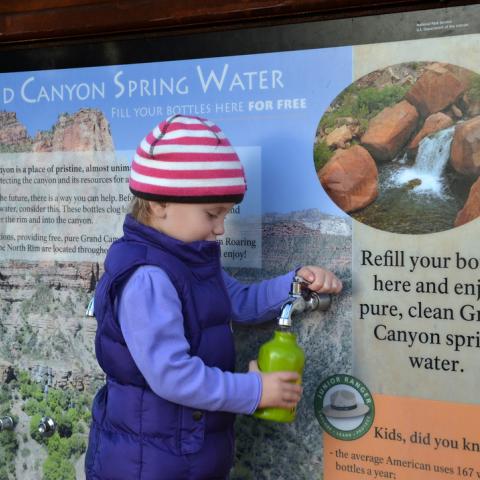
Rodent poison used somewhere in Grand Canyon National Park is being blamed for the recent death of a bobcat/Rebecca Latson file
A bobcat found dead at Grand Canyon National Park died from rat poison, prompting park staff to remind those who live in the park that rodent poisons are banned there.
"These poisons cause harm to wildlife, pets, and humans and can contaminate the environment. Keeping residences and buildings sanitary, uncluttered, and consistently setting snap traps is the most effective way to control rodents," a park newsletter read. "Free rodent clean-up kits are available for check-out that will help you safely address rodents in your home or workplace."
According to park staff, bobcats, coyotes, fox, mule deer, and chipmunks have died from having been exposed to rodenticide in recent years.
"These animals are not the targets, but are dying after ingesting unapproved and inappropriately used rodent poisons," staff noted. "It is unknown how many other animals may have died because of these poisons. Rodenticides can linger in the food chain for several weeks, and cause additional animals to die from eating rodenticide-poisoned animals. As scavengers of dead animals, condors are very susceptible to rodenticide poisoning Condors are one of the world's most endangered animals and a symbol of the Grand Canyon."




 Support Essential Coverage of Essential Places
Support Essential Coverage of Essential Places







Comments
Many residents of Grand Canyon NP seem to feel they are excluded from park regulations and management does nothing about it. Residents have planted non-native species in their housing areas, they allow pet cats to roam free and kill native wildlife, they feed birds and other animals, they let their dogs off leash, and engage in a host of other activies which would result in citation or prosecution for a member of the general public.